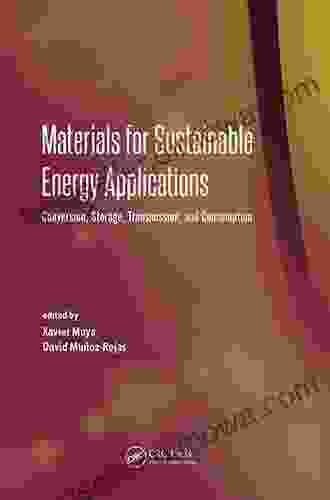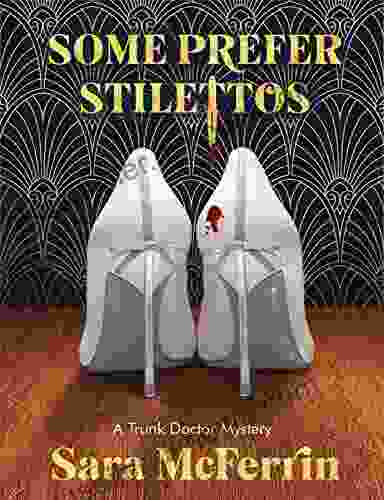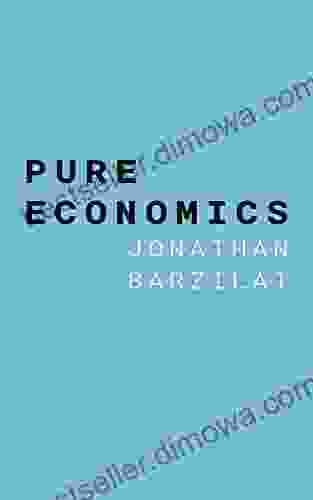Conversion Storage Transmission And Consumption

The Energy Cycle
Energy is the lifeblood of our modern world. It powers our homes, businesses, and industries. It fuels our transportation and communication systems. And it makes possible the countless conveniences of our daily lives.
5 out of 5
| Language | : | English |
| File size | : | 8088 KB |
| Text-to-Speech | : | Enabled |
| Screen Reader | : | Supported |
| Enhanced typesetting | : | Enabled |
| Print length | : | 812 pages |
But where does energy come from? And how does it get to the places where it is needed?
The energy cycle is the process by which energy is created, transformed, transported, and used. It begins with the extraction of raw energy resources from the Earth, such as fossil fuels, nuclear fuel, and renewable energy sources like solar and wind. These resources are then converted into usable forms of energy, such as electricity, heat, and motion. The energy is then transported to the places where it is needed, and finally, it is consumed to power our homes, businesses, and industries.
Conversion
Energy conversion is the process of changing one form of energy into another. For example, a power plant converts the chemical energy stored in coal into electrical energy. A solar panel converts the sun's energy into electrical energy. And a battery converts chemical energy into electrical energy.
There are many different types of energy conversion technologies, each with its own advantages and disadvantages. The most common type of energy conversion is the conversion of chemical energy into electrical energy. This is done in power plants, which burn fossil fuels to heat water and produce steam. The steam drives a turbine, which generates electricity.
Other common types of energy conversion include:
* The conversion of heat into electricity, which is done in geothermal power plants. * The conversion of wind energy into electricity, which is done in wind turbines. * The conversion of solar energy into electricity, which is done in solar panels.
Storage
Energy storage is the process of storing energy for later use. There are many different types of energy storage technologies, each with its own advantages and disadvantages. The most common type of energy storage is the storage of electrical energy in batteries. Batteries store electrical energy in chemical form, and they can be discharged to release energy when needed.
Other common types of energy storage include:
* The storage of thermal energy in thermal storage systems. * The storage of hydrogen energy in hydrogen fuel cells. * The storage of pumped hydro energy in pumped hydro storage systems.
Transmission
Energy transmission is the process of transporting energy from the place where it is produced to the place where it is needed. There are many different types of energy transmission technologies, each with its own advantages and disadvantages. The most common type of energy transmission is the transmission of electricity through power lines.
Other common types of energy transmission include:
* The transmission of natural gas through pipelines. * The transmission of coal through railroads and ships. * The transmission of oil through tankers and pipelines.
Consumption
Energy consumption is the process of using energy to power our homes, businesses, and industries. There are many different types of energy consumption, each with its own advantages and disadvantages. The most common type of energy consumption is the consumption of electricity.
Other common types of energy consumption include:
* The consumption of natural gas. * The consumption of coal. * The consumption of oil.
The Future of Energy
The future of energy is uncertain, but there are a number of trends that are likely to shape its development. These trends include:
* The increasing use of renewable energy sources. * The development of new energy storage technologies. * The increasing efficiency of energy consumption.
These trends are likely to lead to a more sustainable and secure energy future.
Energy is essential to our modern world. It powers our homes, businesses, and industries. It fuels our transportation and communication systems. And it makes possible the countless conveniences of our daily lives.
The energy cycle is the process by which energy is created, transformed, transported, and used. It begins with the extraction of raw energy resources from the Earth, and it ends with the consumption of energy to power our homes, businesses, and industries.
There are many different types of energy conversion, storage, transmission, and consumption technologies, each with its own advantages and disadvantages. The future of energy is uncertain, but there are a number of trends that are likely to shape its development. These trends include the increasing use of renewable energy sources, the development of new energy storage technologies, and the increasing efficiency of energy consumption. These trends are likely to lead to a more sustainable and secure energy future.
5 out of 5
| Language | : | English |
| File size | : | 8088 KB |
| Text-to-Speech | : | Enabled |
| Screen Reader | : | Supported |
| Enhanced typesetting | : | Enabled |
| Print length | : | 812 pages |
Do you want to contribute by writing guest posts on this blog?
Please contact us and send us a resume of previous articles that you have written.
 Book
Book Novel
Novel Page
Page Chapter
Chapter Text
Text Story
Story Genre
Genre Reader
Reader Library
Library Paperback
Paperback E-book
E-book Magazine
Magazine Newspaper
Newspaper Paragraph
Paragraph Sentence
Sentence Bookmark
Bookmark Shelf
Shelf Glossary
Glossary Bibliography
Bibliography Foreword
Foreword Preface
Preface Synopsis
Synopsis Annotation
Annotation Footnote
Footnote Manuscript
Manuscript Scroll
Scroll Codex
Codex Tome
Tome Bestseller
Bestseller Classics
Classics Library card
Library card Narrative
Narrative Biography
Biography Autobiography
Autobiography Memoir
Memoir Reference
Reference Encyclopedia
Encyclopedia Julia Watts
Julia Watts Bharat Sundaresan
Bharat Sundaresan Lyra Selene
Lyra Selene Richard Lee Byers
Richard Lee Byers Ben Curtis
Ben Curtis Sarah Dalton
Sarah Dalton Kimberley Kleczka
Kimberley Kleczka Denisa Rosca
Denisa Rosca Barry Wolverton
Barry Wolverton Bert Rosenbloom
Bert Rosenbloom Beau Dure
Beau Dure Bob Baird
Bob Baird Paul Larney
Paul Larney Tom Rother
Tom Rother Poppy Shire
Poppy Shire Victoria Marcos
Victoria Marcos Bob Glauber
Bob Glauber Gary S Cross
Gary S Cross Ben Bergeron
Ben Bergeron Willard C Somers
Willard C Somers
Light bulbAdvertise smarter! Our strategic ad space ensures maximum exposure. Reserve your spot today!
 Hector BlairFollow ·18.5k
Hector BlairFollow ·18.5k Federico García LorcaFollow ·12.5k
Federico García LorcaFollow ·12.5k Darren BlairFollow ·3.4k
Darren BlairFollow ·3.4k Leo TolstoyFollow ·5.6k
Leo TolstoyFollow ·5.6k Bill GrantFollow ·18.3k
Bill GrantFollow ·18.3k Norman ButlerFollow ·15.9k
Norman ButlerFollow ·15.9k Caleb CarterFollow ·3.4k
Caleb CarterFollow ·3.4k Mikhail BulgakovFollow ·2.6k
Mikhail BulgakovFollow ·2.6k

 Elton Hayes
Elton HayesFly Fishing the Rapid River: A Journey into Angling...
Nestled amidst towering...

 Henry Green
Henry GreenFirst Field Guide to Mushrooms of Southern Africa: Your...
Unveil the Hidden...

 Ben Hayes
Ben HayesWhen the Lights Went Out All Over the World: A Literary...
In the annals of...

 Frank Mitchell
Frank MitchellUnveiling the Secrets of the Impenetrable Forest: My...
An Enchanting...

 Junot Díaz
Junot DíazUp Close: Rachel Carson's Pioneering Legacy
A Woman of Vision and...

 Juan Butler
Juan ButlerUnveiling the Secrets of Turkey's Ancient Sites: A...
Turkey, a land of rich...
5 out of 5
| Language | : | English |
| File size | : | 8088 KB |
| Text-to-Speech | : | Enabled |
| Screen Reader | : | Supported |
| Enhanced typesetting | : | Enabled |
| Print length | : | 812 pages |












